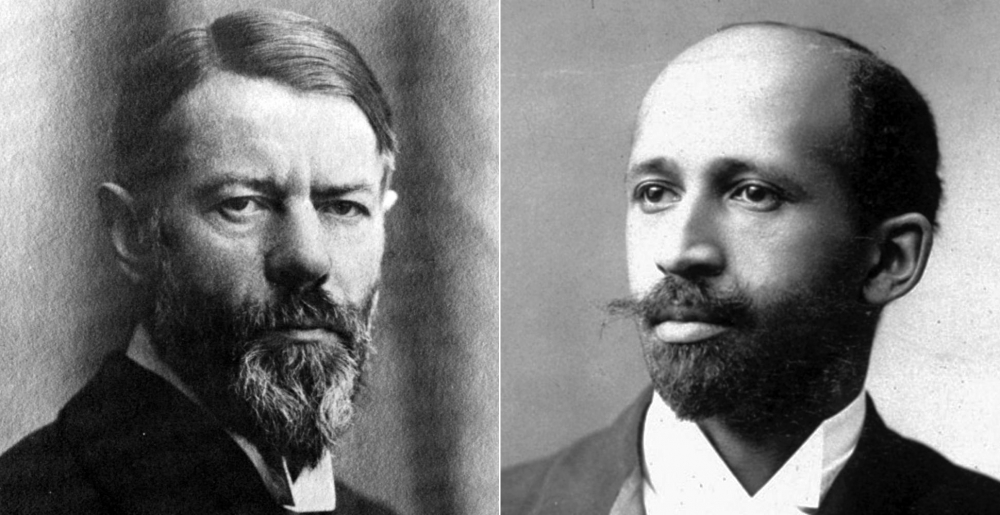
A Parting of the Minds

In 1905, German sociologist Max Weber wrote a warm letter to W.E.B Du Bois, offering praise for the American sociologist’s landmark book of essays, “The Souls of Black Folk.” He even insisted it be translated into German.
The missive was one of five Weber wrote, between 1904 and 1905, to Du Bois, one of the great African American intellectuals of the 20th century. They were the letters of equals, of friendly scholars who might even explore racism around the world.
The correspondence followed their meeting at the 1904 World’s Fair in St. Louis, where Du Bois likely reminded Weber they had crossed paths at the University of Berlin in the early 1890s, said Christopher McAuley, an associate professor of Black Studies at UC Santa Barbara.
But then the letters stopped. McAuley will explore why the two scholars seemed to fall out in a talk Monday, March 5, from 10:30 a.m. to noon in UCSB’s South Hall, Room 3707. His address will preview his book “The Spirit vs. the Souls: Weber, Du Bois and the Politics of Scholarship” (Notre Dame University Press), due in 2019. The event, which is free and open to the public, is part of the department’s colloquium series.
Weber and Du Bois, McAuley noted, shared interests even if they were an original odd couple of modern academics. “They were, but at the same time when you look at the letters, there’s a real warmth there that I don’t think was disingenuous,” he said. “But ultimately it was untenable.”
McAuley said he believes that while they admired one another and shared some academic passions, ultimately the gaps between them were too great.
“I think they recognized,” he said, “that while there was a lot that they shared, and the fact that DuBois was somebody who studied in Germany and was a real admirer of things German and the German intellectual tradition, I think there was a difference in how they thought about how the modern world came to be.
“To a certain degree this had to do with their foci on these different populations,” McAuley continued. “For Du Bois, he’s trying to understand black America and then soon thereafter a larger black world. Weber is really looking at things from what’s happening first and foremost in Germany and in a European world.”
In time, Du Bois came to be one of the most important civil rights figures in America. The first African American to earn a doctorate at Harvard University, he co-founded the National Association for the Advancement of Colored People in 1909 and fought tirelessly against racism on multiple fronts.
McAuley notes that one of the pivotal moments in Du Bois’ life came in 1906, when Frank Boas, considered the father of modern anthropology, gave the commencement address at Atlanta University, where Du Bois was teaching.
Boas told the historically black university that contrary to what they’d been taught about Africa, the continent had a rich history. “Du Bois says that prior to this, he had been taught to think that Africans were these backward, primitive people,” McAuley noted. “He said, ‘I went to Harvard, I went to the University of Berlin, and nobody contradicted those beliefs. Now here I am a grown man nearly 40, Franz Boas comes and says these things, and it forces me now to rethink what it is I have been taught.’ ”
Soon after, McAuley said, Du Bois began reading about African history and paying attention to what was happening on the continent. At the same time he was also learning about German colonialism. “And it’s real ugly. Because what you start to see is that toward the end of the first decade of the 20th century, and certainly by the time of the first world war, his attitudes toward Germany in particular have done a complete 180-degree turn from what he used to say. And it’s largely because he’s looking now closely at what colonial policy was.”



